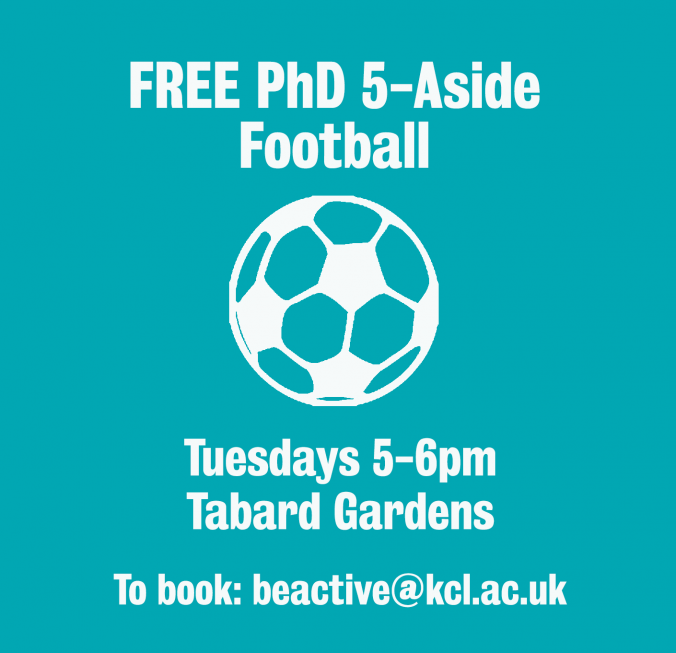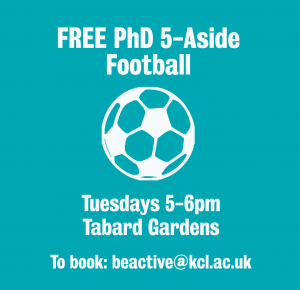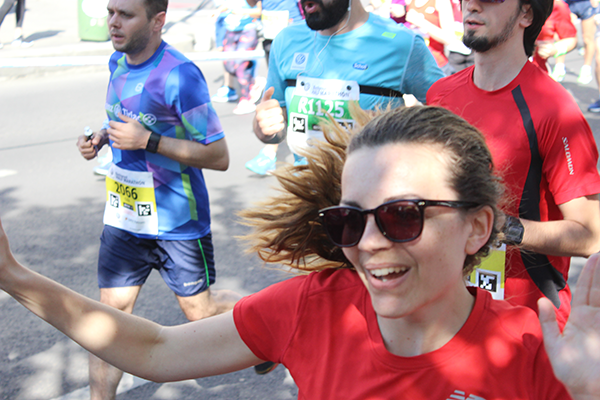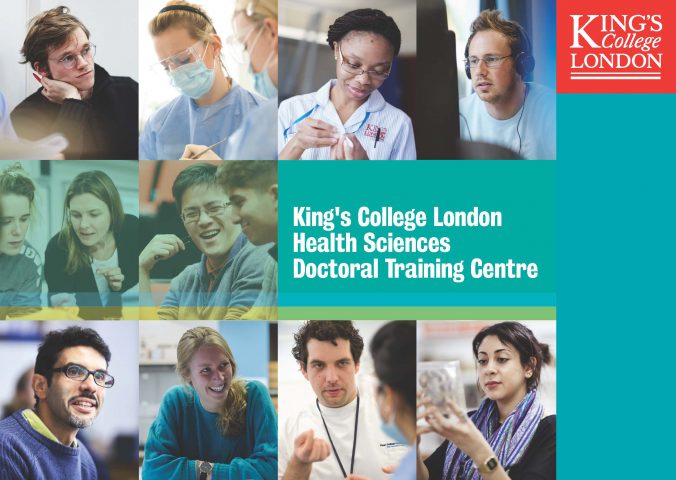As a postgraduate research student (PGR) at King’s, reaching this point in your career is itself a major achievement – and cause for celebration. You have successfully managed to complete an undergraduate and a postgraduate degree, and now you’re embarking upon the highest qualification that university education has to offer. In addition, the years that you spend researching, thinking, experimenting, and writing your PhD can be some of the most rewarding and intellectually exciting years of your career. Not only will you spend your years as a postgraduate researcher working in a focused way on your distinctive contribution to knowledge, but you will learn host of professionally valuable skills, have the opportunity to meet and collaborate with a wide range of peers, and be exposed to a multitude of academic, professional, and personal opportunities.
And yet, PhD research can be a real challenge and can exert a serious toll on your mental wellbeing. For many postgraduate research students, the pressure to excel can cause anxiety and stress. For others, working independently can cause loneliness and isolation. And for many doctoral students, beyond the challenge of the PhD thesis itself, external factors can worsen the stress of postgraduate research. Many PGRs are carers, parents, or work part-time outside their studies, and have financial and caring responsibilities in addition to their research.
We recognise, therefore, that as well as being a privilege and a major educational and professional milestone, studying for a PhD can also place significant stress on your wellbeing, in particular your mental health.
Take Time Out!
That is why, on the 11th of July, the Centre for Doctoral Studies is putting on a special, PGR-focused “Take Time Out” event, designed to help you meet your peers, move your body, and rejuvenate your mind – and above all, to encourage you to take a break from your busy schedule and re-focus on your own personal wellbeing.
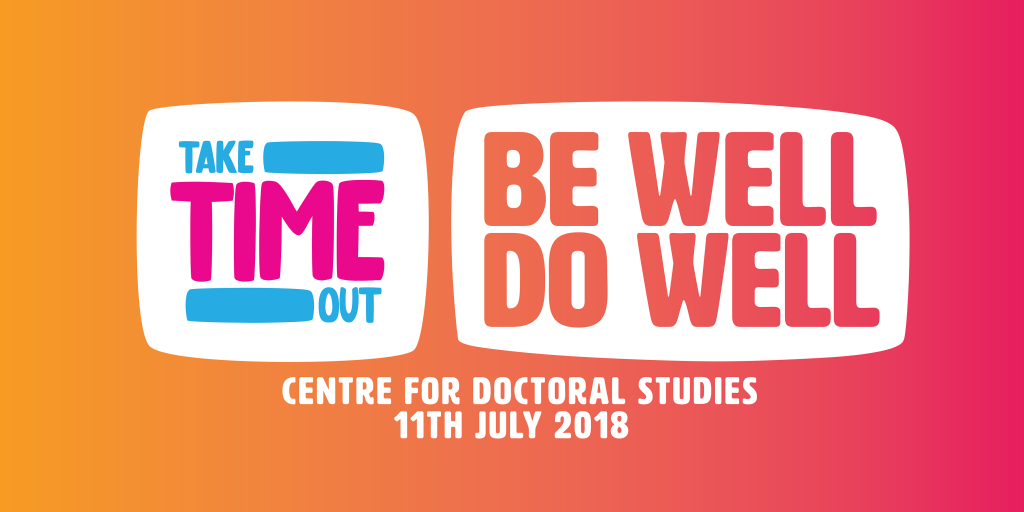
To register for Take Time Out: PGR Wellbeing, go to our Eventbrite page.
You can register for the whole day or pick and choose the activities you want to attend.
Three Online Resources for PGR Mental Wellbeing
Taking time out of study for yoga, mindfulness practice, or just to rest is an excellent way to maintain balance in your work life as a PGR, but sometimes things aren’t so simple and we need other resources to help us through difficult periods.
King’s has a range of services, including Student Advice, Wellbeing Coaching, counselling, and therapy groups to support you with any issue or to help you through a crisis.
However, if you can’t make it to a campus, work part-time, or simply feel uncomfortable talking to somebody face-to-face, King’s also has a number of online resources that can help you with a range of difficulties.
Big White Wall
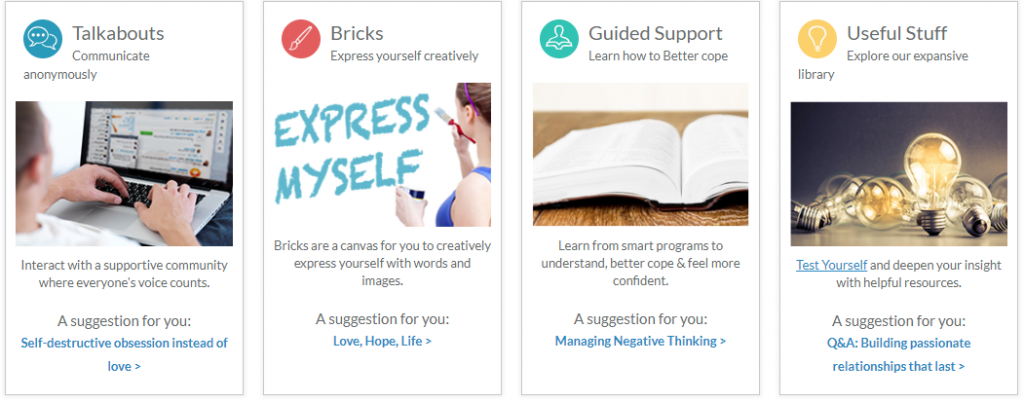
Big White Wall is a 24-hour online support service that provides a safe, anonymous, and supportive space in which to get things off your chest, share your experiences and difficulties, and engage with others experiencing similar issues.
As well as offering a platform in which you can express yourself, Big White Wall offers a range of online courses on dealing with stress, anxiety, and negative thinking, and allows you to take self-assessments with which to monitor your progress.
All King’s students and staff have access to this service for free. This platform is moderated to ensure total anonymity and safety for its users and is available 24/7.
Counselling Service Helpsheets
If you’re experiencing a specific issue or you wish to seek help from a service outside King’s and don’t know where to turn, the King’s Counselling service has a range of online Helpsheets on a range of specific issues – from bereavement to addiction.
These provide some key facts and point you towards a range of resources and other services where you can seek the help you need.
Blackbullion

This service, available via King’s, is designed to help you with a specific but all too common cause of stress and anxiety: money. For many PGR students, managing the financial challenge of undertaking a PhD is a source of considerable stress. For some students, the PhD will be the first time they will have managed a significant budget. For others, the financial burden of a PhD is one of many other budgetary concerns, including childcare, housing, travel, or other responsibilities.
Blackbullion is an online service that offers courses on budgeting and managing your finances as an international student. If these seem a bit basic, Blackbullion provides courses and information on more advanced financial topics including taxation, investing, and risk management.
It also offers a budget management tool that will allow you to get a better view of your financial status, and allow you to take the first positive steps towards managing your money and gaining some peace of mind.
If you are experiencing any of the above issues and need support for any reason do not hesitate to contact Student Services. They will be able help you access the support you need.


